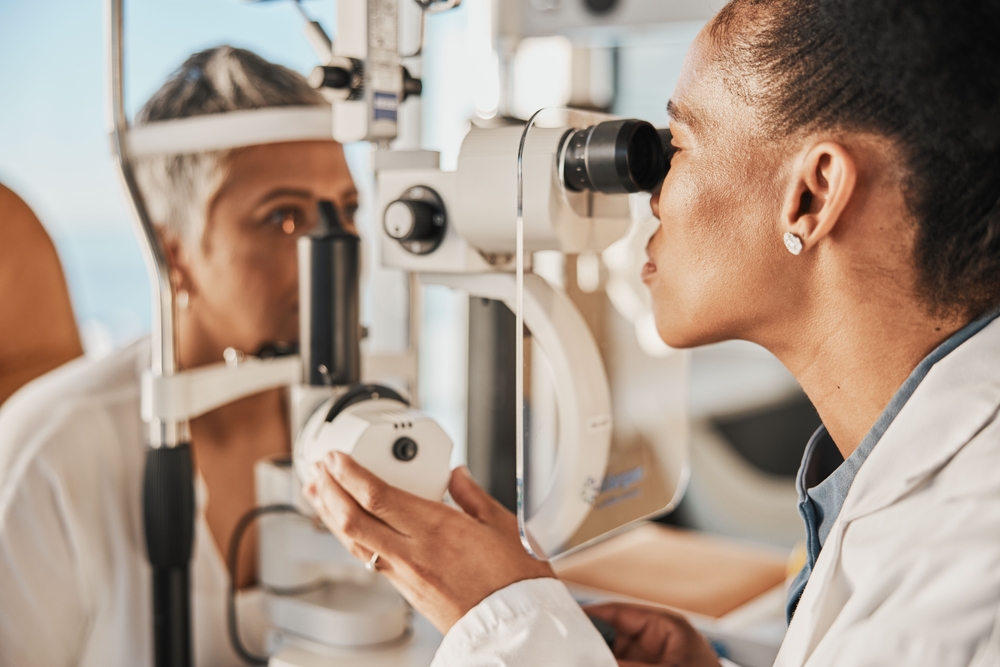Primary Health Insurance:
BlueCross BlueShield
United Health Care
Humana
Cigna
North Mississippi Acclaim
Medicare
Medicaid

Vision therapy is essentially a sequence of neuro-cognitive exercises that are used to improve the brain's ability to control eye alignment, eye tracking and eye teaming, eye focusing abilities, eye movements, and visual processing. It's like physical therapy for your eyes and brain, the goal is to enhance eye tracking, focusing, and visual processing skills.
Vision therapy is not a one-size-fits-all solution. Instead, it is designed to address specific eye conditions. Among the most common are strabismus, amblyopia, and certain types of binocular vision problems. These conditions often result in issues with depth perception, eye movement and coordination, and the ability to see clearly at different distances.
Vision therapy can also help manage certain visual conditions associated with developmental and learning disabilities. For instance, children with reading and learning problems often have underlying vision issues that can be addressed through vision therapy.
Another eye condition addressed by vision therapy is Computer Vision Syndrome, a condition increasingly common in the digital age. Symptoms include eyestrain, headaches, blurred vision, dry eyes, and neck and shoulder pain. Vision therapy can help manage these symptoms and improve your overall visual comfort and performance.
The process begins with a comprehensive eye examination to determine if vision therapy is the right solution for your specific needs. The eye doctor will assess your visual acuity, eye alignment and teaming, eye focusing, and visual processing skills.
Based on the results of this examination, a personalized vision therapy program is then designed for you. This program typically consists of supervised in-office sessions coupled with exercises to be done at home. The length and frequency of these sessions can vary, but on average, they last about an hour and are conducted once or twice a week.
During therapy sessions, you might be asked to perform a variety of exercises using specialized equipment such as therapeutic lenses, prisms, filters, computer programs, and more. These exercises are designed to train the brain to use the eyes to receive information more effectively.
Vision therapy programs are tailored to individual needs, but there are a few essential components that are commonly involved. Firstly, vision therapy exercises are designed to help patients improve basic visual skills and abilities such as eye movement control and eye coordination.
Another key component is enhancing visual efficiency. This involves improving eye tracking, focusing, and teaming skills - all of which are crucial for tasks such as reading, writing, and even sports.
Lastly, vision therapy aims to improve visual processing and interpretation. This goes beyond just seeing clearly - it's about helping the brain make sense of the visual information it receives.
The benefits of vision therapy go beyond just achieving better vision. For one, it can significantly improve your quality of life. Imagine being able to read, write, drive, or play sports without any visual difficulties. That's the kind of transformation vision therapy can bring about.
Additionally, vision therapy can help improve academic and occupational performance. For children struggling with learning because of visual issues, vision therapy can lead to improvements in reading, writing, and overall learning. For adults, it can lead to better job performance, especially in occupations that require good visual skills.
Lastly, vision therapy can lead to improvements in sports performance. Good vision is a key component in many sports, and by enhancing visual skills such as eye-hand coordination, depth perception, and peripheral awareness, vision therapy can give athletes an edge in their game.
Vision therapy is an effective and scientifically proven method for improving a variety of visual issues. Whether it's strabismus, amblyopia, Computer Vision Syndrome, or learning-related vision problems, vision therapy can provide a clearer path to better vision.
The first step towards better vision is understanding your visual needs. Don't wait for your vision problems to get worse. Get your eyes checked, understand your visual needs, and explore the possibility of vision therapy today, visit Primary Eye Care at our office in Tupelo, Mississippi. Call (662) 200-9842 to schedule an appointment today.